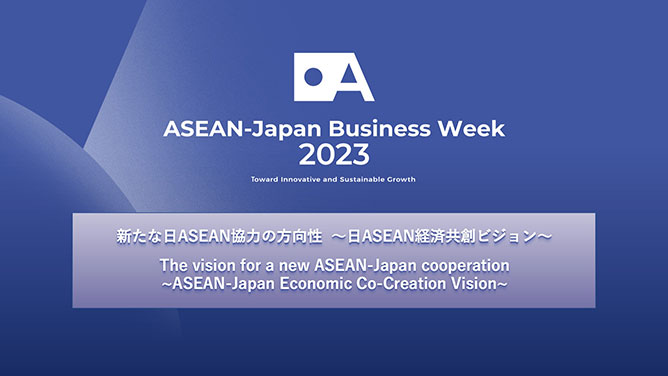

5 June[MON]
11:00 - 12:45
The vision for a new ASEAN-Japan cooperation
~ASEAN-Japan Economic Co-Creation Vision~
SPEAKERS
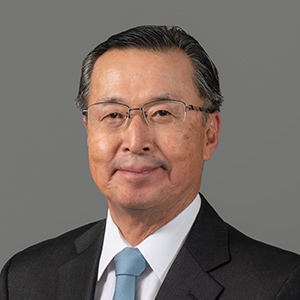
Japan External Trade Organization (JETRO)
Chairman and CEO
ISHIGURO Norihiko

East Asia Business Council
Chairman
Shaanti Shamdasani

Economic Research Institute for ASEAN and East Asia(ERIA)
Special Advisor to the PresidentResearch Institute of Economy, Trade and Industry (RIETI)Senior Advisor
WATANABE Tetsuya
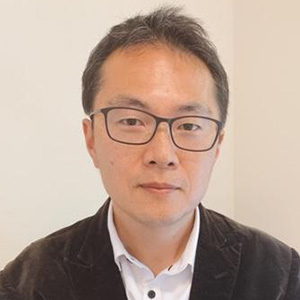
Kyushu University
Associate Professor
AIZAWA Nobuhiro
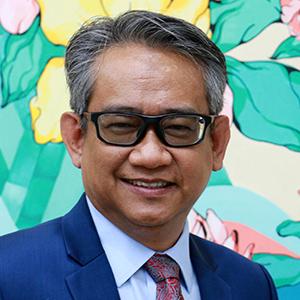
Mekong Institute
Executive Director
Suriyan Vichitlekarn
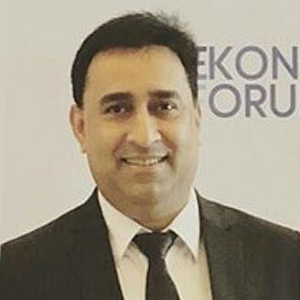
Mekong Institute
Director
Madhurjya Kumar Dutta

Department of International Relations, Universitas Indonesia
Doctor
Ardhitya Eduard Yeremia

Ministry of Trade of the Republic of Indonesia
Director of ASEAN Negotiation
Dina Kurniasari
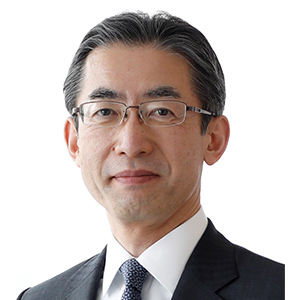
Japan Association of Corporate Executives
Chairman, Asia Project TeamANA HOLDINGS INC.
Member of the Board, Vice Chairman
HIRAKO Yuji
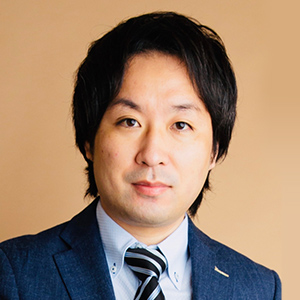
ICMG Co., Ltd.CEO
TSUJI Yusuke

National Bank of Cambodia
Deputy Governor
Serey CHEA

Cinnamon Inc.
Representing Director
HIRANO Miku
SUMMARY
In this session, discussions revolved around the interim summary of the “ASEAN-Japan Economic Co-Creation Vision,” with an emphasis on the role of ASEAN and Japan in leading and shaping economic collaboration. Ms. Shanti, Chairman of the East Asia Business Council, delivered the keynote speech at the beginning of the session. It was stressed that the effective utilization of cyber-physical connectivity is crucial, along with a serious commitment to addressing global environmental impacts, including food security.
The overview of the ASEAN-Japan Economic Co-Creation Vision highlighted the pursuit of a free, secure, and prosperous society, emphasizing the need for shared tacit knowledge and a medium-to-long-term perspective. Furthermore, post-pandemic challenges in the ASEAN-Japan relationship, such as food security, inflation, supply chain vulnerabilities, poverty, and inequality, became evident. Collaborative efforts were deemed necessary to address these issues. Specific collaborative areas mentioned included promoting ESG practices in manufacturing and HR skill development within the Nexus Project. For Japanese companies to succeed in collaborating with ASEAN counterparts, it was considered crucial to share a sense of mission, worldview, and problem awareness. While investments in previously under-represented sectors were important, interactions between globally-connected Asian entities were emphasized as vital, as highlighted by the panelists.
